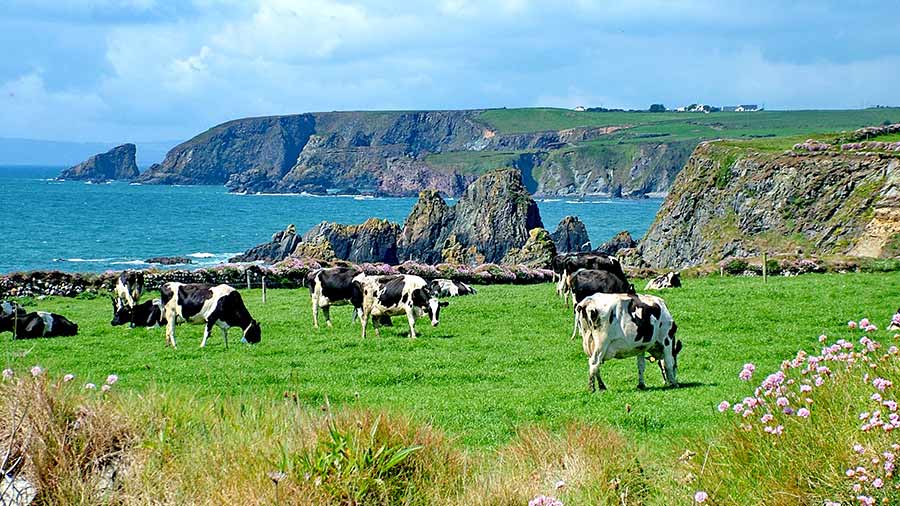Irish dairy herd set to be cut 10% under government plans
 © Bob/Adobe Stock
© Bob/Adobe Stock The Irish government is considering an initiative to significantly reduce the number of dairy cows in order to reach its climate change targets.
A target of reducing emissions from farming in Ireland by a quarter by 2030 has been set by government.
One proposal to achieve this is by reducing the national dairy herd by 10%, the equivalent of removing 65,000 cows a year for three years, according to the Irish Independent.
See also: What UK dairy farmers can learn from Dutch ‘nitrogen crisis’
Minister for agriculture Charlie McConalogue told Irish radio station RTE Morning Ireland that a dairy vision group with farmer representatives has been looking into a range of options to reduce emissions on farm.
This includes a voluntary dairy reduction scheme, which is under consideration.
Further information on the proposals to reduce agricultural emissions are due to be released by the Irish Department for Agriculture later in the year.
Farming reaction
The Irish Farmers’ Association president Tim Cullinan said: “Reports like this only serve to further fuel the view that the government is working behind the scenes to undermine our dairy and livestock sectors.
“While there may well be some farmers who wish to exit the sector, we should all be focusing on providing a pathway for the next generation to get into farming,” he said.
Mr Cullinan added that reducing dairy or beef production in Ireland will also lead to production moving to other countries with a higher carbon footprint, which will increase global warming, rather than reducing it.
Macra na Feirme’s president, Elaine Houlihan, described the government’s proposal as a “complete knee-jerk report” which could be very damaging for farming.
